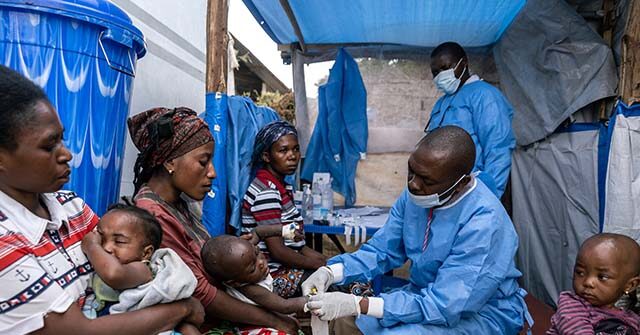The Africa Centers for Disease Control (Africa CDC) has recently urged the incoming U.S. administration under President-elect Donald Trump to uphold outgoing President Joe Biden’s commitment to provide one million doses of the monkeypox vaccine to combat outbreaks in central and eastern Africa. Africa CDC Director John Kaseya expressed concerns that failing to fulfill this promise could exacerbate existing mistrust towards the United States on the African continent, potentially leading to more significant diplomatic issues. He emphasized the importance of open dialogue, presenting himself as willing to engage directly with the new administration to discuss Africa’s health needs and the need for collaboration in public health initiatives.
In response to the growing concern over monkeypox, the World Health Organization (W.H.O.) had declared a global health emergency regarding the disease back in August. Following this, President Biden announced a plan at the U.N. General Assembly to donate one million doses of the monkeypox vaccine, along with at least $500 million in additional funding for related health initiatives. Despite there being no reported monkeypox cases in the United States, officials from the Biden administration indicated that the possibility of an outbreak remained, further stressing the need for adequate funding from Congress to bolster pandemic preparedness and response measures.
Current reports indicate that the Democratic Republic of the Congo (DRC) is facing the highest demand for monkeypox vaccinations, with several other African nations also affected by the outbreak, including Kenya, Nigeria, and Uganda. Vaccines for the disease have already been sourced from Canada, the European Union, and the Gavi vaccine alliance, along with the forthcoming U.S. donation. Health officials in the DRC have pointed to signs of stabilization in the epidemic, which once peaked at approximately 400 cases per week but has now decreased to around 200 to 300 confirmed cases weekly. However, the W.H.O. remains cautious, suggesting that insufficient testing might be contributing to the continued spread of the virus, particularly in Uganda.
Experts like Dr. Salary Rhissa from the nonprofit Alliance for International Medical Action (ALIMA) advocate for an aggressive vaccination campaign, stating it could effectively eliminate monkeypox and avert future variants that could strain public health systems. He’s emphasized the critical nature of the current moment, warning that a failure to act now may lead to larger outbreaks reminiscent of previous events, such as the one that occurred in Nigeria in 2017. This sentiment is echoed by Dr. Salim Abdool Karim from South Africa’s University of KwaZulu-Natal, who asserts that the current monkeypox variant remains persistent and will not simply disappear like earlier strains, making widespread vaccination essential for containment.
Against this backdrop, there are underlying concerns regarding the influence of vaccine skepticism within the new U.S. administration, exemplified by the presence of Robert F. Kennedy Jr., known for his controversial views on vaccines. Kennedy, in a recent interview, reiterated that his goal is not to restrict vaccine access but to ensure safety studies are thoroughly conducted, allowing individuals to make informed choices about vaccinations. This position has raised apprehensions among African health officials who fear that mixed signals from the U.S. could hamper the commitment to vaccine distribution and public health during a critical period.
In conclusion, the current state of monkeypox necessitates urgent global attention and cooperation. With the U.S. pledging a substantial vaccine donation, it’s essential that the incoming Trump administration recognizes the implications of its commitments not just for public health in Africa, but also for international relations. The pressing demand for effective vaccination campaigns, diligent surveillance, and sustained funding must be prioritized to ensure not only the containment of monkeypox but also the prevention of future outbreaks that could arise if the current opportunities are overlooked.

